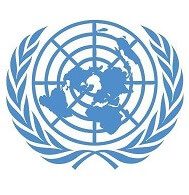Org. Setting and Reporting
The UN Secretary-General launched on 1 January 2019 a bold and new global reform which repositioned the UN Development System to deliver more effectively and efficiently with the achievement of the 2030 Agenda and the Sustainable Development Goals. As part of this reform, UN Resident Coordinator Offices (UN RCO), under the leadership of an empowered and independent UN Resident Coordinator - the highest-ranking official of the UN Development System and Representative of the UN Secretary-General at country level - support countries in the achievement of their development priorities and the attainment of the SDGs.
The position is located in the UN Resident Coordinator's Office in Tanzania. The Associate Development Coordination Officer, Data Management And Results Monitoring & Reporting, reports to the Head of RCO.
Responsibilities
Within limits of delegated authority, the incumbent will be responsible for the following duties:
1. PROVIDES SUBSTANTIVE SUPPORT FOR THE DEVELOPMENT AND IMPLEMENTATION OF THE UNCT DATA AND RESEARCH STRATEGIES:
- Assists in the design and implementation of the UNCT’s data and research strategy, in alignment with the Common Country Analysis (CCA) and UN Development Assistance Framework (UNDAF).
- Undertakes empirical analysis, data mining and visualization, as assigned, to assist the Resident Coordinator (RC) and UNCT, including results groups, in developing reports and working papers on sustainable development topics.
- Compiles and analyses information on the latest developments of the use of new types of data sources and tools (e.g. big data) for sustainable development.
- Provides substantive and analytical support to RC/UNCT in preparing and positioning the UN to accelerate the achievement of the Sustainable Development Goals (SDGs) in the country, including the drafting of reports, as well as analytical and position papers.
- Contributes to UNCT research and development of data and research tools and methodologies at the country level.
- Keeps abreast of emerging development issues to optimize UNCT’s analytical capacity to respond to national priorities.
- Contributes substantively to the development and implementation of peer review and quality assurance mechanisms for UNCT’s research products.
- Administers UNINFO planning, monitoring and reporting system and contributes to the development of the One UN Country Results Report.
2. ASSISTS IN THE DEVELOPMENT AND EXPANSION OF STRATEGIC RESEARCH AND DATA PARTNERSHIPS, INCLUDING WITH UN ENTITIES AT REGIONAL AND HQ LEVEL, GOVERNMENT COUNTERPARTS, RESEARCH INSTITUTES, LEADING GLOBAL THINKERS ON DEVELOPMENT, AND CIVIL SOCIETY, AMONG OTHERS:
- Supports the UN’s work with national data and statistical systems, facilitating engagement with national entities and data systems.
- Communicates and coordinates with existing partners and helps form new partnerships with UN agencies, academia, the private sector, and governmental agencies to further the use of data science for development.
- Communicates and coordinates with internal and external partners on data collection and project/research implementation.
- Supports the convening of key thinkers on sustainable development and 2030 Agenda to provide inputs on, advise and steer the UNCT’s research and data agenda.
- Assists in strengthening the UNCT’s partnerships with research institutions and similar entities across the UN system though concrete collaboration on areas of the 2030 agenda.
3. UNDERTAKES MONITORING AND REPORTING OF UNCT RESULTS UNDER THE UN DEVELOPMENT ASSISTANCE FRAMEWORK (UNDAF):
- Supports inter-agency efforts on results and progress monitoring and reporting on the UNDAF and Joint Programmes, particularly through UNINFO.
- Assists in preparing the UNDAF monitoring and evaluation (M&E) framework and reporting results at country, regional and global levels.
- Contributes to independent evaluations of UNDAFs as a key element of the UNDAF cycle, and other interagency work related to monitoring, evaluation and reporting.
- Serves as country focal point for country-level, regional and global M&E initiatives and networks.
4. SUPPORTS KNOWLEDGE MANAGEMENT AND CAPACITY DEVELOPMENT RELATED TO DATA AND MONITORING:
- Assists in the sharing of best practices within the UNCT and with UNCTs in the (sub)region and globally, based on a solid understanding of the incentives that people need to utilize knowledge.
- Advocates for knowledge sharing, inspiring others within the RCO and UNCT to contribute their expertise through internal and external platforms and tools, working closely with colleagues at the regional level to ensure usable knowledge is shared between and applied by UNCTs.
- Assists in the identification of good practices and lessons learned at the different levels of the UN System (national, regional and global) and share findings with HQ, Regional and country colleagues so that best practices benefit UN’s work.
- Contributes to the UNCT’s exchange of best practice, trends, knowledge and lessons learned with external partners.
- Provides substantive support for assigned thematic activities and knowledge-sharing forums and encourages others to participate.
- Contributes to knowledge sharing (including through training and peer exchange) amongst UN staff on issues related to UN strategic planning frameworks, methodologies and tools.
- Draws upon other UN experiences, lessons learned and knowledge networking to provide contributions to strategic planning processes.
- Contributes to the collection and analysis of data and identification of trends or patterns and provides draft insights through graphs, charts, tables and reports using data visualization methods for data-driven planning, decision-making, presentation and reporting.
- Documents requirements and background information used for data analysis.
- Performs other duties as assigned.
Competencies
PROFESSIONALISM: Knowledge and understanding of sustainable development theories, concepts and approaches. Ability to identify and develop sources for data collection. Ability to undertake research, analyze data, make recommendations and write draft reports on sustainable development issues. The ability to analyze and interpret data in support of decision-making and convey resulting information to management. Shows pride in work and in achievements; demonstrates professional competence and mastery of subject matter; is conscientious and efficient in meeting commitments, observing deadlines and achieving results; is motivated by professional rather than personal concerns; shows persistence when faced with difficult problems or challenges; remains calm in stressful situations. Takes responsibility for incorporating gender perspectives and ensuring the equal participation of women and men in all areas of work.
CLIENT ORIENTATION: Considers all those to whom services are provided to be "clients" and seeks to see things from clients' point of view; establishes and maintains productive partnerships with clients by gaining their trust and respect; identifies clients' needs and matches them to appropriate solutions; monitors ongoing developments inside and outside the clients' environment to keep informed and anticipate problems; keeps clients informed of progress or setbacks in projects; meets timeline for delivery of products or services to client.
TEAMWORK: Works collaboratively with colleagues to achieve organizational goals; solicits input by genuinely valuing others' ideas and expertise; is willing to learn from others; places team agenda before personal agenda; supports and acts in accordance with final group decision, even when such decisions may not entirely reflect own position; shares credit for team accomplishments and accepts joint responsibility for team shortcomings.
Education
Advanced university degree (Master’s degree or equivalent degree) in business or public administration, information management, statistics, sustainable development, social sciences, education or related area is required. A first-level university degree in combination with two additional years of qualifying experience may be accepted in lieu of the advanced university degree. Knowledge of statistical programming languages like R, Python and database query languages like SQL, Hive, Pig, Scala is desirable. Good applied statistical skills, statistical test, distribution, regression, maximum likelihood estimators is desirable. Knowledge of machine learning methods is desirable. Strong math skills multivariable Calculus and linear algebra is desirable.
Work Experience
A minimum of two years of progressively responsible experience in providing strategic support to research and data analysis, knowledge management or project/programme management in the context of development cooperation or related area is required.
Work experience as data scientist or data analytics or related area is required.
Experience with a visualization tools like matplotlib, ggplot, d3.ja, Tableau is desirable
Languages
English and French are the working languages of the United Nations Secretariat. For the post advertised, fluency in oral and written English and Swahili/Kiswahili is required. Knowledge of another official United Nations language is an advantage.
NOTE: "Fluency equals a rating of "fluent" in all four areas (read, write, speak, understand) and "Knowledge of" equals a rating of "confident" in two of the four areas

